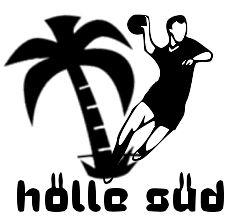Anmelde-Plattform für die Beachturniere in Ismaning
This is the frontend for Beachanmeldung
To get up and running run:
$ npm install
$ npm run devYes, that's it. Only two commands!
If you still think that's too much effort, you could also run:
$ npm i && npm run devBut yeah, this will basically do the same as npm install.
If even this is too much of a deal, try creating an alias and bind npm install && npm run dev to npmid.
Wait a minute, you just said that I only need to run npm install? What's this? I need to do more?
Yeah, to get up and running real quick, npm install is enough.
But if you want to, let's say, connect to an external API, there's a little bit more involved.
You need to configure your application a bit more, explained below:
Inside the config/*.env.js-files, you can configure your environment variables.
Out of the box the applications comes bundled with AJAX-support.
For more information, visit the docs.
-
npm run dev: first-in-class development experience.- Webpack +
vue-loaderfor single file Vue components. - State preserving hot-reload
- State preserving compilation error overlay
- Lint-on-save with ESLint
- Source maps
- Webpack +
-
npm run build: Production ready build.- JavaScript minified with UglifyJS.
- HTML minified with html-minifier.
- CSS across all components extracted into a single file and minified with cssnano.
- All static assets compiled with version hashes for efficient long-term caching, and a production
index.htmlis auto-generated with proper URLs to these generated assets.
For quickly scaffolding components, pages, layouts and more, install the Vueture CLI tool.
$ npm install -g vueture-cliSo there are a couple of important files that needs to be addressed:
This file will bootstrap the application. It will load:
- vue
- vue-router
- vue-i18n
- vuex
- axios
- element ui
- jquery
- font-awesome
Don't like one of those packages?
Just strip them from the bootstrap and the package.json-files.
This file will load your single page application. It is also the entry point which will be loaded and compiled using webpack.
The main Vue file.
This file will load the page inside the router-view-component.
It will check if the user is authenticated and load the resources accordingly.
Inside the src-directory, are a couple directories that needs to be addressed:
Your components will be placed inside this directory. As you can see, this boilerplate already comes shipped with an pre-made panel component.
Your layout files will be placed inside this directory. When you are building a large single page application, you will be using different layouts. For instance, your login-page or register-page will have a different layout than your account-page.
The boilerplate comes out of the box with two layouts included. A minimal layout, used for the login and register page, and a default layout. Used for the home and account page.
The mixins you want to use with Vue will be placed inside this directory.
Inside the mixins directory is a slot-mixin.
This mixin will add the hasSlot()-method to all the components it is used in.
The pages/views are placed inside this directory.
By default it comes with an account/index.vue, home/index.vue, login/index.vue and a register/index.vue page,
but feel free to add more.
You can compare services with controllers. They connect with external services, like an API, and call actions on the store. Normally you would perform AJAX-requests from the services, but to get the example working, the data is hardcoded.
As mentioned before, Vuex is used as a single point of truth. To learn more about Vuex, visit the documentation
Transformers are used to transform the incoming and outgoing requests. If you have an API where you can retrieve posts from, a post wil look something like this:
{
"id" : 1,
"title" : "Hello World!",
"content" : "Lorem Ipsum",
"created_at" : "today"
}However, it feels weird to use snake_cased variables inside your camelCased application. This is where transformers come in. So given the previous example, using a transformer, it will look something like this:
{
"id" : 1,
"title" : "Hello World!",
"content" : "Lorem Ipsum",
"createdAt" : "today"
}Last but not least we get an utils-directory.
Here you can place handy utils you want to use inside your application.
Huge Thanks to petervmeijgaard, whose frontend boilerplate is used throughout this project.
The Readme for the frontend is located in web/vueapp.
Feel free to hit me up on:
Create an issue
Or send me an email
The MIT License (MIT)
Copyright (c) 2017 Bernhard Wittmann
Permission is hereby granted, free of charge, to any person obtaining a copy of this software and associated documentation files (the "Software"), to deal in the Software without restriction, including without limitation the rights to use, copy, modify, merge, publish, distribute, sublicense, and/or sell copies of the Software, and to permit persons to whom the Software is furnished to do so, subject to the following conditions:
The above copyright notice and this permission notice shall be included in all copies or substantial portions of the Software.
THE SOFTWARE IS PROVIDED "AS IS", WITHOUT WARRANTY OF ANY KIND, EXPRESS OR IMPLIED, INCLUDING BUT NOT LIMITED TO THE WARRANTIES OF MERCHANTABILITY, FITNESS FOR A PARTICULAR PURPOSE AND NONINFRINGEMENT. IN NO EVENT SHALL THE AUTHORS OR COPYRIGHT HOLDERS BE LIABLE FOR ANY CLAIM, DAMAGES OR OTHER LIABILITY, WHETHER IN AN ACTION OF CONTRACT, TORT OR OTHERWISE, ARISING FROM, OUT OF OR IN CONNECTION WITH THE SOFTWARE OR THE USE OR OTHER DEALINGS IN THE SOFTWARE.
